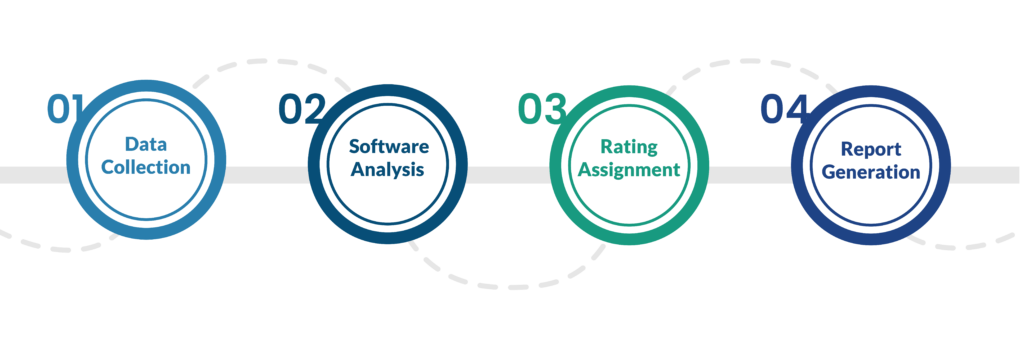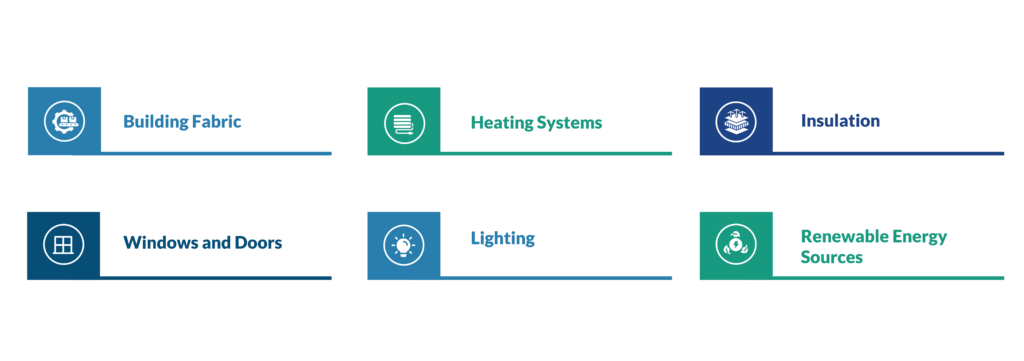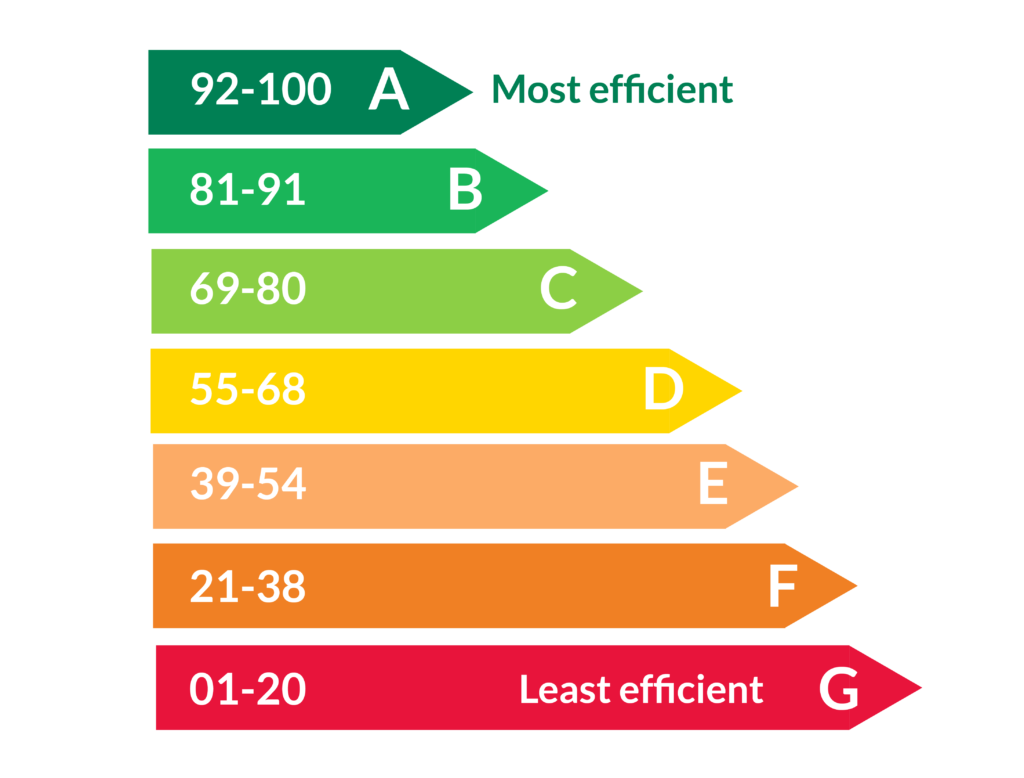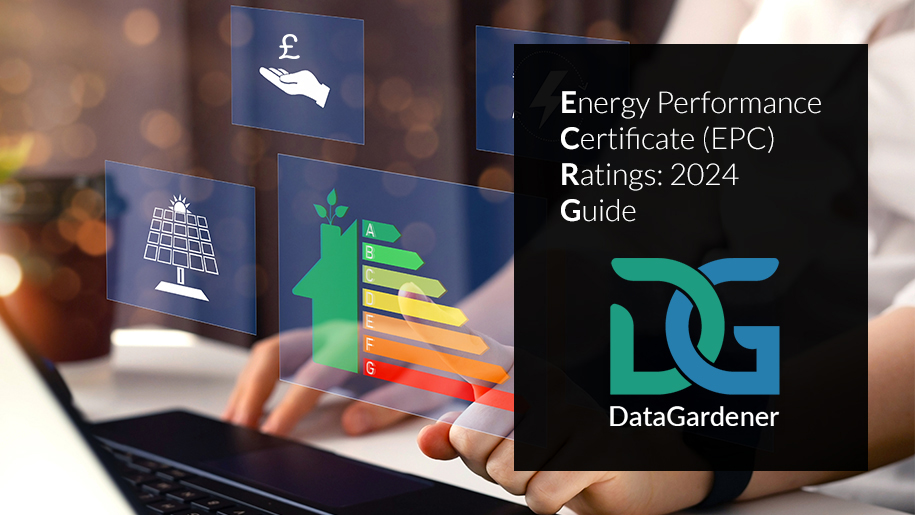Table of Contents
- Introduction to EPC Ratings
- Energy Efficiency Rating and Environmental Impact Rating
- History and Background of EPC Ratings
- Importance of EPC Ratings
- Legal Requirements and Regulations
- How EPC Ratings Are Calculated
- Components of an EPC Rating
- Building Fabric
- Heating Systems
- Insulation
- Windows and Doors
- Lighting
- Renewable Energy Sources
- EPC Rating Bands and Their Meanings
- EPC for Different Property Types
- How to Obtain an EPC Rating
- EPC Assessors and Their Role
- EPC Rating and Property Value
- Impact of EPC Ratings on Energy Bills
- Improving Your EPC Rating
- Insulation Upgrades
- Heating System Upgrades
- Renewable Energy Installations
- Window and Door Replacements
- Energy-Efficient Lighting
- Common Misconceptions about EPC Ratings
- EPC Ratings in Different Countries
- Case Studies of EPC Rating Improvements
- Future Trends in EPC Ratings
- Frequently Asked Questions (FAQs)
- Conclusion
Introduction to EPC Ratings
Energy Performance Certificates (EPCs) are essential documents that provide information about buildings’ energy efficiency. Introduced as part of broader initiatives to improve energy consumption and reduce carbon footprints, EPCs help property owners, buyers, and tenants understand how energy efficient a property is, what its typical energy use and costs are and provide recommendations on improving its energy efficiency.
EPC ratings are expressed on a scale of A to G, with A being the most energy-efficient and G being the least. The rating is calculated based on various factors, including the building’s construction, the type of heating and insulation installed, and the presence of renewable energy sources.
Difference Between Energy Efficiency Rating and Environmental Impact Rating
Energy Efficiency Rating
The energy efficiency rating is a crucial part of the EPC. It tells you how efficient your home is in terms of energy use. A higher rating means lower energy bills and a smaller carbon footprint.
Environmental Impact Rating
This rating indicates your home’s environmental impact in terms of carbon dioxide (CO2) emissions. Lower emissions mean a better rating, contributing to environmental sustainability.
History and Background of EPC Ratings
The concept of EPC originated from the European Union’s Directive on the Energy Performance of Buildings, which was first introduced in 2002. This directive aimed to improve energy efficiency across the EU and required member states to implement energy performance certification for buildings. The UK implemented these requirements in 2007, mandating EPCs for all properties being built, sold, or rented.
Importance of EPC Ratings
EPC ratings play a critical role in helping to reduce energy consumption and carbon emissions. They provide clear information to property owners and potential buyers or renters about a property’s energy efficiency, encouraging improvements that lead to lower energy bills and reduced environmental impact. Furthermore, EPC ratings are increasingly being used as a metric in determining property value and marketability.
How EPC Ratings Are Calculated
EPC ratings are calculated using a standardised assessment method known as the Standard Assessment Procedure (SAP). This method considers various factors, including the age and type of property, heating systems, insulation levels, and energy-saving measures such as double glazing and solar panels. The assessment results in a score corresponding to a letter grade from A to G.
The calculation of an EPC rating involves several steps:

- Data Collection: An accredited energy assessor visits the property to collect data. This includes information about the building’s construction, heating system, insulation, windows, and lighting.
- Software Analysis: The collected data is input into standardised software approved by the government. The software calculates the energy efficiency and environmental impact ratings based on the data.
- Rating Assignment: The software generates an energy efficiency rating on a scale from A to G. It also provides an environmental impact rating, which indicates the property’s carbon dioxide (CO2) emissions.
- Report Generation: The assessor produces the EPC, which includes the ratings, a summary of the property’s energy performance-related features, and recommendations for improvement.
Components of an EPC Rating

Building Fabric
Building fabric refers to the physical components of a property’s structure, including walls, roof, floors, windows, and doors. The materials used and the quality of construction significantly impact the building’s energy efficiency. Well-insulated walls and roofs, for example, can substantially reduce heat loss and improve the EPC rating.
Heating Systems
Heating systems are a significant factor in determining a property’s energy efficiency. Modern, efficient heating systems can lower energy consumption and improve the EPC rating. The type of heating system, its age, and its maintenance all affect overall energy performance.
Insulation
Insulation is critical in preventing heat loss and maintaining a comfortable indoor temperature. The presence and quality of insulation in walls, roofs, and floors are essential factors of the EPC assessment. Properties with inadequate insulation will likely have lower EPC ratings.
Windows and Doors
Windows and doors are potential weak points in a building’s thermal envelope. Energy-efficient windows and doors can significantly reduce heat loss and improve the property’s energy efficiency. Double or triple glazing, as well as the use of high-quality frames, are essential considerations.
Lighting
Lighting is another component considered in the EPC rating. Energy-efficient lighting, such as LED bulbs, can reduce electricity consumption and improve the energy performance score. The assessment looks at the property’s type and number of light fittings.
Renewable Energy Sources
Integrating renewable energy sources like solar panels or wind turbines can positively impact a property’s EPC rating. These systems can generate clean energy, reducing reliance on traditional energy sources and lowering overall energy consumption.
EPC Rating Bands and Their Meanings

EPC ratings are divided into seven bands, each representing a range of energy efficiency scores:
Meaning
- A (most efficient): Indicates excellent energy performance.
- B: Good energy performance with potential for minor improvements.
- C: Average performance with room for improvement.
- D: Below average; improvements needed.
- E: Poor energy performance; significant improvements are required.
- F: Very poor energy performance.
- G (least efficient): Extremely poor energy performance; urgent improvements needed.
Each band indicates the property’s energy performance, with A-rated properties being highly energy-efficient and G-rated properties being very energy-inefficient.
Think Data. Think DataGardener
DataGardener users double their leads and cut research time in half — with smarter data, faster insights, and better decisions.
EPC for Different Property Types
Residential Properties
- EPC Requirements for Homes: All residential properties being sold or rented must have a valid EPC. Homeowners are encouraged to improve their EPC ratings to enhance property value and attract eco-conscious buyers.
- Tips for Homeowners and Tenants: Homeowners should prioritise energy efficiency improvements, while tenants can discuss potential upgrades with their landlords.
Commercial Properties
- EPC Requirements for Commercial Buildings: Commercial properties, like residential ones, must have an EPC when sold or rented. Specific regulations may vary depending on the building type and usage.
- Tips for Business Owners and Tenants: Business owners should consider energy efficiency upgrades to reduce operational costs, while tenants should inquire about the property’s EPC rating before leasing.
New Builds
- EPC Requirements for New Constructions: New buildings must comply with energy efficiency standards and obtain an EPC before being marketed. Developers are responsible for ensuring compliance.
How to Obtain an EPC Rating
Property owners must hire an accredited energy assessor to obtain an EPC rating. The assessor will visit the property, conduct a thorough inspection, and collect data on various aspects of the building’s energy performance. This data is then input into a software program that calculates the EPC rating and generates the certificate.
EPC Assessors and Their Role
EPC assessors are trained professionals accredited by government-approved bodies. Their role is to conduct detailed assessments of properties to determine their energy performance. They follow strict guidelines and use standardised methods to ensure the accuracy and consistency of the EPC ratings.
EPC Rating and Property Value
An EPC rating can significantly impact a property’s value. High-rated properties are often more attractive to buyers and tenants, as they promise lower energy bills and a smaller environmental footprint. Conversely, properties with lower ratings may be less appealing and could potentially sell or rent for less.
Impact of EPC Ratings on Energy Bills
EPC ratings provide a clear indication of a property’s potential energy costs. Properties with higher ratings are more energy-efficient and, therefore, have lower energy bills. Property owners can reduce energy consumption and save money on utility bills by improving their EPC rating.
Improving Your EPC Rating
Insulation Upgrades
Improving insulation is one of the most effective ways to enhance a property’s energy efficiency. Adding or upgrading insulation in walls, roofs, and floors can significantly reduce heat loss and improve the EPC rating.
Heating System Upgrades
Upgrading to a more efficient heating system can also substantially impact a property’s EPC rating. Modern boilers, heat pumps, and underfloor heating systems are much more efficient than older models and can significantly reduce energy consumption.
Renewable Energy Installations
Installing renewable energy systems, such as solar panels or wind turbines, can improve a property’s EPC rating by reducing reliance on traditional energy sources and lowering overall energy consumption.
Window and Door Replacements
Replacing old, inefficient windows and doors with modern, energy-efficient ones can significantly reduce heat loss and improve the property’s energy performance. Double or triple glazing and high-quality frames are vital considerations.
Energy-Efficient Lighting
Switching to energy-efficient lighting, such as LED bulbs, can reduce electricity consumption and improve the EPC rating. Energy-efficient lighting is more cost-effective and lasts longer, providing additional savings.
Common Misconceptions about EPC Ratings
Several common misconceptions about EPC ratings exist, including the belief that they are only relevant for new properties or not crucial for rental properties. In reality, EPC ratings are essential for all properties and are critical in reducing energy consumption and environmental impact.
EPC Ratings in Different Countries
EPC rating systems vary by country, with each nation having its specific standards and regulations. For example, in the UK, EPCs are required for all properties being built, sold, or rented, while in other countries, the requirements may differ. Understanding different countries’ specific requirements and standards is essential for property owners and buyers.
Future Trends in EPC Ratings
The future of EPC ratings is likely to see continued improvements in assessment methods and standards. Advances in technology, changes in regulations, and increasing awareness of environmental issues are all expected to drive further enhancements in how EPC ratings are calculated and used.
Legal Requirements and Regulations
A valid EPC is a legal requirement in the UK whenever a property is built, sold, or rented. Failure to comply with this requirement can result in penalties. The regulations stipulate that an accredited energy assessor must produce the EPC for at most 10 years. Similar regulations exist in other countries, each with specific requirements and standards.
Think Data. Think DataGardener
DataGardener users double their leads and cut research time in half — with smarter data, faster insights, and better decisions.
FAQs
When Don’t I Need an EPC?
You don’t need an EPC for temporary buildings, places of worship, or properties scheduled for demolition. However, it’s always good to check the specific exemptions that apply. In some cases, listed buildings may also be exempt.
How often do I need to renew my EPC?
An EPC is valid for 10 years, after which you’ll need a new assessment.
Can I get an EPC if my home is a listed building?
Yes, but specific requirements or exemptions may exist for listed buildings.
Do I need an EPC to sell my home?
Yes, it’s a legal requirement to have a valid EPC when selling your property.
Do I need an EPC for my property?
In the UK, an EPC is required whenever a property is built, sold, or rented. Similar regulations exist in other countries, with specific requirements varying by location.
Who’s Responsible for Getting an EPC Check?
If you’re selling or renting out a property, you must ensure it has a valid EPC. Failure to do so can result in fines.
Conclusion
EPC ratings are crucial to improving energy efficiency and reducing carbon emissions. By providing clear information about a property’s energy performance, EPCs help property owners, buyers, and tenants make informed decisions and encourage improvements that lead to lower energy bills and a smaller environmental footprint. Understanding and improving EPC ratings is not only beneficial for individual properties but also contributes to broader environmental goals and sustainability efforts.
